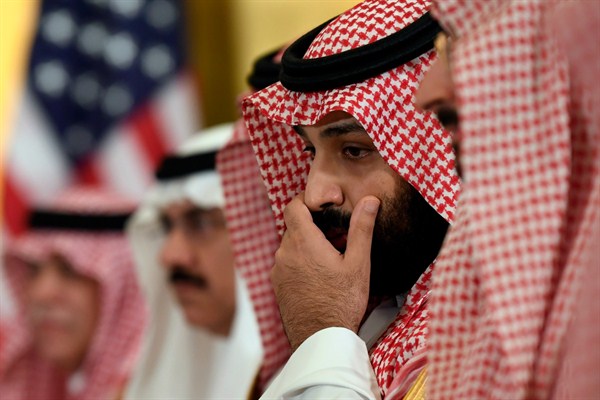Saudi Arabia’s oil sector has probably never seen developments as jarring as the ones since late August. An unprecedented shakeup in the Ministry of Energy, with a member of the royal family appointed energy minister for the first time, was followed by the stunningly precise attacks on oil facilities in eastern Saudi Arabia in the early hours of Sept. 14. Once-inconceivable questions are now being asked about the extent of U.S. commitments to the kingdom’s security, which have formed the backbone of Saudi policy for decades. How will the kingdom react?
The removal of Khalid al-Falih as both energy minister and chairman of the state oil giant Aramco means that two prominent technocrats entrusted by Crown Prince Mohammed bin Salman to spearhead his vaunted “Vision 2030” economic development program, which aims to shift the Saudi economy away from oil, have now fallen from grace. Adel al-Faqih, a former minister of economy and planning once close to the crown prince, was held in the notorious Ritz-Carlton roundup in November 2017, and is still being detained.
The turmoil began on Aug. 30 when a series of royal decrees restructured the energy sector. A new Ministry of Industry and Mineral Resources was spun off from the Energy Ministry, reducing the size of what had been a kind of super ministry. A little more than a week later, al-Falih was removed as head of the truncated Energy Ministry, replaced with one of King Salman’s sons, Abdulaziz bin Salman. A son of the king by his first wife and hence a much older half-brother of the powerful crown prince, the 59-year-old Abdulaziz bin Salman became the first member of the royal family to wield ministerial responsibility for Saudi energy policy. Al-Falih was also removed as chairman of Saudi Aramco, replaced by the head of Saudi Arabia’s Public Investment Fund, Yasir al-Rumayyan.

